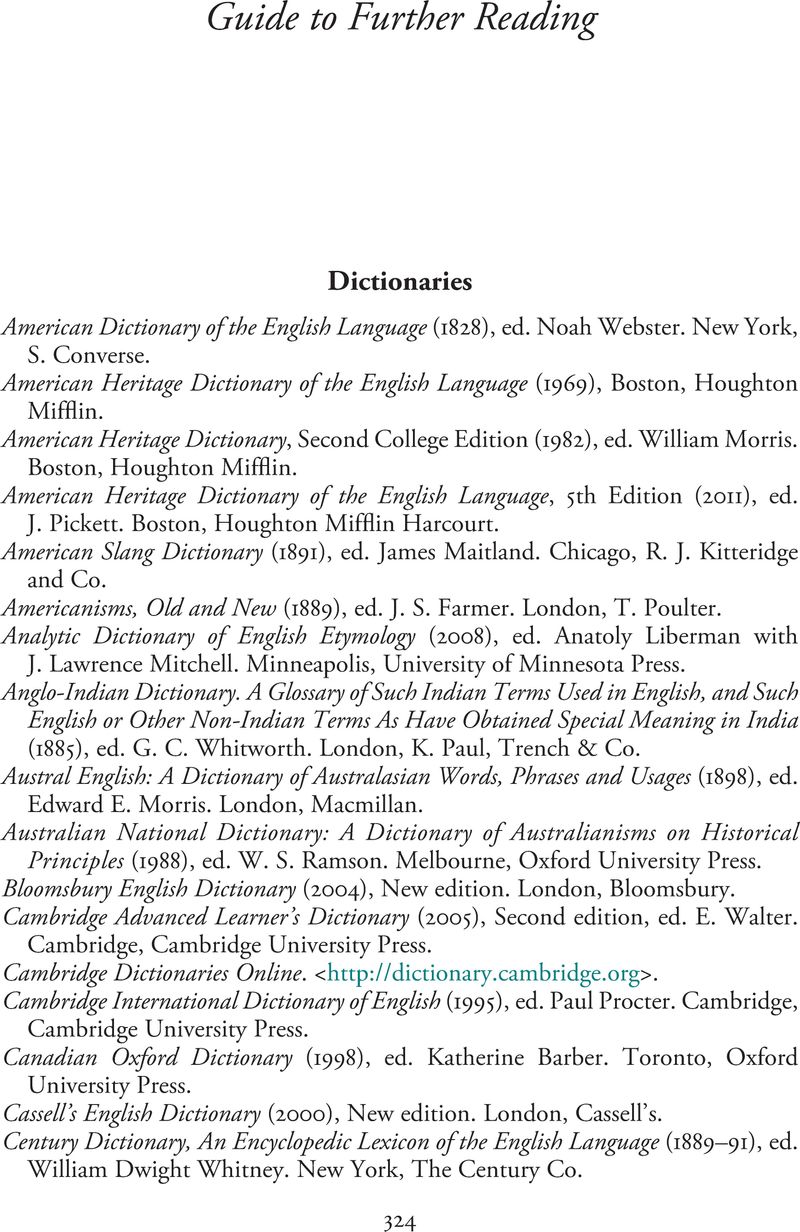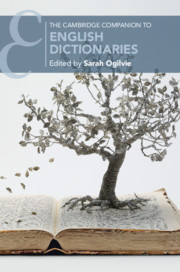Book contents
- The Cambridge Companion to English Dictionaries
- The Cambridge Companion to English Dictionaries
- Copyright page
- Dedication
- Contents
- Illustrations
- Tables
- Notes on Contributors
- Acknowledgements
- Chronology
- Chapter 1 Introduction
- Part I Issues in English Lexicography
- Part II English Dictionaries Throughout the Centuries
- Part III Dictionaries of English and Related Varieties
- Guide to Further Reading
- Index
- Cambridge Companions to Literature
- References
Guide to Further Reading
Published online by Cambridge University Press: 18 September 2020
- The Cambridge Companion to English Dictionaries
- The Cambridge Companion to English Dictionaries
- Copyright page
- Dedication
- Contents
- Illustrations
- Tables
- Notes on Contributors
- Acknowledgements
- Chronology
- Chapter 1 Introduction
- Part I Issues in English Lexicography
- Part II English Dictionaries Throughout the Centuries
- Part III Dictionaries of English and Related Varieties
- Guide to Further Reading
- Index
- Cambridge Companions to Literature
- References
Summary

- Type
- Chapter
- Information
- The Cambridge Companion to English Dictionaries , pp. 324 - 341Publisher: Cambridge University PressPrint publication year: 2020

